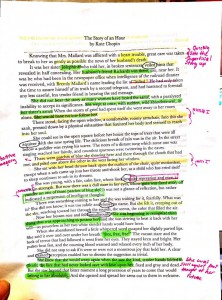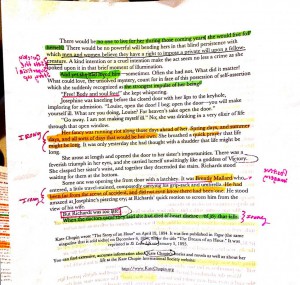For your post due on Thursday morning, first read the Margaret Atwood text called “There Was Once,” which I gave you in class last week. Think about how it retells the story of Cinderella (you might refresh your memory, re-learn, or learn for the first time about this folktake. The Disney version is not the original version! The Wikipedia entry for Cinderella gives us many versions, including the Brothers Grimm version, which is thought to be the basis for the versions of the story in Western Europe and the US).
Returning to Atwood’s story, what changes does the second speaker prompt the storyteller to make? We will discuss the challenges the second speaker makes as the kind of questions we should ask about any text we read, in much the same way that we looked critically at certain details in the Frida Kahlo painting in class. What would it mean for your reading to question nearly every word in a story? Also, how does this story stand as an example of any of the elements of fiction that you read about?
These questions are all linked, but you don’t have to answer all of them. Think about what interests you in them, and respond with a post that’s approximately 300 words. You might use the comments as an opportunity to reflect on an aspect of the story you wanted to think more about but didn’t include in your post.
Be sure to review the Blogging guidelines as you draft your response.





